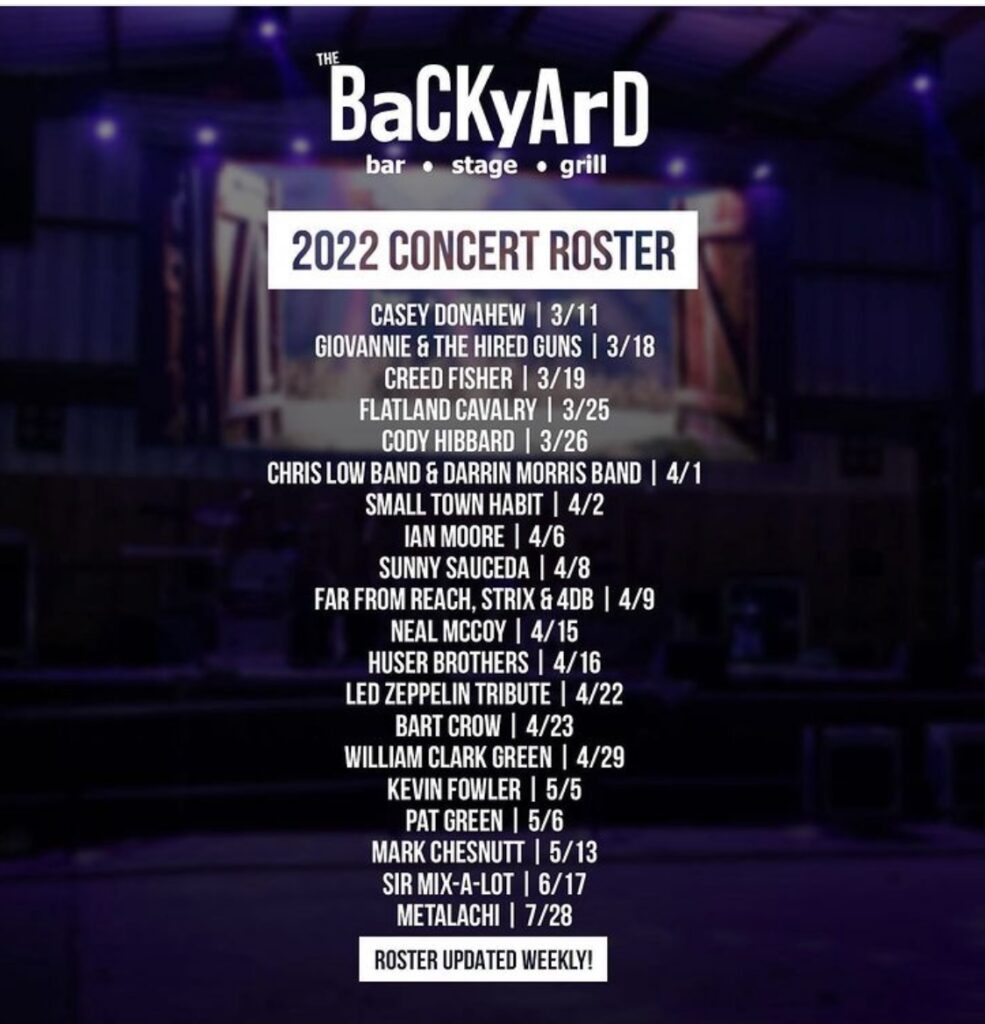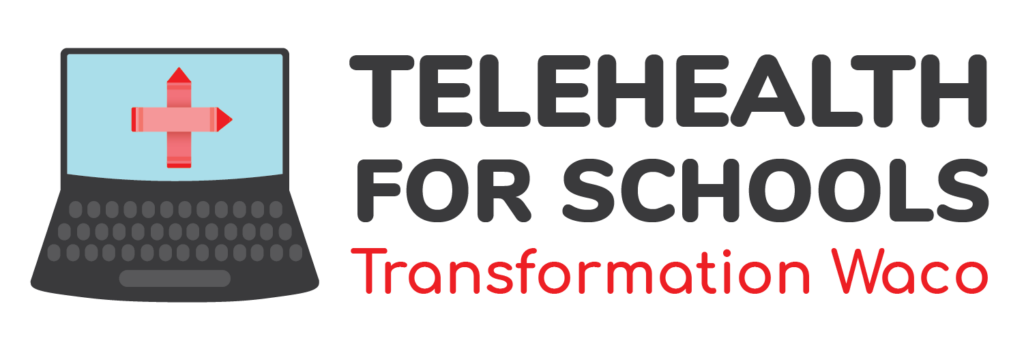Today, on April 8, 2024, the Sun will be completely eclipsed by the Moon in a celestial event that won’t be visible again from the continental United States until 2045. The path of this total solar
eclipse will run directly through Waco, Texas, making it an ideal location for viewing this rare celestial display. Four storied organizations: Lowell Observatory, the City of Waco, Baylor
University, and Discovery are partnering to create an on-site public event that will be broadcast around the world: Eclipse Over Texas 2024: Live from Waco.
On April 8, 2022 two years to the day before the eclipse happens partner members of Eclipse Over Texas 2024: Live from Waco will hold a press conference to announce plans for the 2024 event.
What: Press Conference to announce plans for April 8, 2024, Eclipse Over Texas 2024: Live from Waco.
When: April 8, 2022, 1:30-1:50 p.m. CDT
Who: Representatives from Lowell Observatory, the City of Waco, Baylor University, and media partner Discovery will discuss Eclipse Over Texas 2024: Live from Waco and answer questions.
Where: Media may attend the press conference either virtually or in-person.
● Virtual: https://www.youtube.com/watch?v=NLUBekXUXy8
*Viewers will have the opportunity to ask questions via the YouTube chat feature.
● In-person: McLane Stadium, Baylor University
1001 South Martin Luther King, Jr. Blvd., Waco, TX 76704
DIRECTIONS TO MCLANE STADIUM
I-35 South from DFW Area Take Exit 335C (MLK Blvd).
At the stoplight, turn left and continue straight on MLK Blvd. Turn right into Lot 1 of McLane
Stadium. The media entrance is to the right of Gate B.
I-35 North from Austin
Take Exit 334B (8th Street-4th/5th Streets-Downtown-University Parks Drive-MLK Blvd).
Continue on the frontage road over the Brazos River. Turn right on MLK Blvd and turn right into Lot 1 of McLane Stadium. The media entrance is to the right of Gate B.
Hwy 6 from Houston
From State Hwy 6, take the exit for Orchard Lane. Turn left at the stop sign and continue straight on Orchard Lane to MLK Blvd. Cross MLK and enter Lot 1 of McLane Stadium.
The media entrance is to the right of Gate B.
Helpful Travel Resources:
Real-time traffic information through Waco is available at: www.waco4bmap.org. McLane Stadium Lot 1
Waze Map: https://www.waze.com/live-map/directions?navigate=yes&to=ll.31.55996812%2C-97.11 491168.
About the 2024 Eclipse
A total solar eclipse occurs when the Moon passes between the Sun and Earth and completely obscures the Sun. The April 8, 2024, total solar eclipse, dubbed the Great American Eclipse, will be the
only total solar eclipse in the 21st century in which totality will be visible from the United States, Canada, and Mexico. Based on past weather patterns for this time of year, as well as
accessibility, Texas is an ideal location for an eclipse event. This will be the first total solar eclipse to pass over Waco since July 29, 1878, and the last one of this millennium.
The Waco-McLennan County Public Health District has teamed up with Waco ISD and Transformation Waco to create a community outreach vaccine clinic event at Estella Maxey and Kate Ross Apartment Complexes on 9.
The group worked together to brainstorm innovative ways to administer vaccines in the community and assist students currently enrolled at Waco ISD and are delinquent on their state mandated immunizations. Events will be hosted on site on the weekends to minimize any barriers to accessing care for at-risk community members.
During the vaccine clinic events, hot dogs will be served, and the Waco Housing Authority will be giving out $40 gift cards to individuals who reside in the 76704 and 76706 zip codes that receive their 1st or 2nd dose of the COVID vaccines.
Vaccine clinic event schedule:
Saturday, April 9
Estella Maxey Community Center
1809 J.J. Flewellen, Waco, TX 76704
Noon – 3 p.m.
For more information, please contact Chris Shelley at [email protected] or 254-855-7277.
Rev. Robert L. and Mrs. Elwayne Y. J. Gilbert Scholarship: This scholarship will be awarded to an
African American graduate of a McLennan County high school who plans to enroll at Baylor University.
Preference will be given to students who are interested in Rev. and Mrs. Gilbert’s threefold passions:
ministry, public education, or civic activism.
Vivienne Malone-Mayes Scholarships: These scholarships will be awarded to a graduate of a
McLennan County high school who intends to attend a community college and to a graduate of a
McLennan County high school who intends to attend a four-year college or university.
Dr. Mae Jackson Continuing Student Scholarship: This scholarship will be awarded to a graduate of a
McLennan County high school who will be a continuing student at a four-year college or university.
Eligibility: Applicant must:
- Currently be a high school senior,
- Plan to attend a community college or four-year college/university,
- Have a 2.5 or higher GPA for graduating seniors.
Eligibility for Dr. Mae Jackson Continuing Student Scholarship: Applicant must: - Currently attending a four-year college or university,
- Be a continuing college student (rising sophomore, junior, or senior),
- Have a 3.0 or higher GPA.
Application Requirements: (Should be submitted via email to [email protected]) - Completed scholarship application form
- Official copy of current high school or college transcript. Contact your school’s registrar to have
your transcript emailed by the deadline. - Two letters of recommendation. Letters should be submitted on letterhead by teachers,
employers, or individuals who know your academic performance, service, or character. - Proof of community service, leadership, and work ethic. This may be provided as part of a
resume or as a list. Please do not send actual certificates, awards, etc. - Essay (250-300 words) on the scholarship essay topic (word-processed, double-spaced)
Applications must arrive by midnight on April 4. Applications received after the deadline will
NOT be considered. Students unable to email applications may send them by USPS to Waco
NAACP; P.O. Box 20511; Waco, TX 76702. Applications must be RECEIVED by April 4;
postmarked applications will not be considered.
Applications may be obtained from area high school counselors, emailing [email protected]
or by visiting the website www.waconaacp.org.
March is shaping up to be the month of music here in Waco. This weekend, Waco is showing up for the music scene in preparation for SXSW, Austin’s South by Southwest Music Festival. Waco venues all over the city will be having shows with local bands and performers. Some of our local performers will even showcase at the SXSW festival next weekend. Go out and be loud this weekend and support our local artists and music community, Wacotown!

Local artists, Pirscription and Wacotron are heading to the festival this year. ‘Script has attended SXSW for some seven years, but this time he will performing at The Smoke Out ATX’s official SXSW showcase. With a recently released album, “This is Change” hitting the Top #100 list on ITunes in all genres and ranked #3 in Rap/Hip Hop category it’s safe to say this year is off to a great start for the artist! Also, check out the Private Hip Hop Podcast with Rogue Media Network for more on local (and beyond) up and coming artists.
The Music community is continuing to grow with the recent Live Showcase Saturdays with the new addition of The Texas Music Cafe at 600 Columbus Ave. This addition to the Waco downtown sphere has been drawing musical artists and acts from across the country. Plus, the Backyard here in Waco is building quite a reputation with names like Snoop Dogg and the Rapper Nelly!

- Join in Friday March 11th for the free East Waco Music Fest held at Brotherwell Brewing, 400 E. Bridge st. Friday’s music festival will feature Pirscription & Friends, WacoTron, J Soulja, Kam KT and DQ Hampton, DJ Precyse, The DiMaggios, Ben Atkins and the Tent Revival, and American Merit. Brotherwell Brewing opens the show at 5 p.m. with music from DJ Matt At Home starting at 6 p.m..
- Usher in the spring season with Magnolia Market at the Silos along with dozens of makers, artisans, and vendors from across the country, who are bringing their passions and products right here to Waco. Shop the vendor fair from 9 am to 6 pm each day, enjoy live music from 9:30 am to 5:20 pm, and experience a whole lot more. While you shop, eat, and play on the grounds, you can enjoy live music by artists from across the country.
- The Texas Music Cafe will dedicate its next two Saturday night shows at Nexus Esports, 600 Columbus Ave., to performers with SXSW or Austin connections. This Saturday’s show, March 12th, offers well-known Waco-area musician John Dempsy, and Waco rock ’n’ roll band Far From Reach.
- Rogue Media Network is proud to host four amazing out-of-town bands with some roots to the Cen-Tex area. The bands are making the trek to Waco for an awesome night of original music and jams. We have Longmire from Conroe, TX, Cujo & the Wide Open from Spring, TX, Garden Party from Conroe, TX, and Dayblazer from Fort Worth, TX. It’s going to be a fun night of hanging and enjoying music in downtown Waco. This event is sponsored by Music Magic Art!
- Come celebrate Truelove’s 10th year with a full day of live music featuring: Richard Donavann, Leaf Village, The Hawks & The Found, Dead Horse Creek, Rewound, and The Dimaggios. After the show, the party continues as DJ Rewound spins the freshest of tunes on the back patio, Faux Maux will be offering a custom menu to commemorate the event, and the stage will be turned over to the patrons for an evening of karaoke.
- Come see LA duo, Junaco, on their road trip to SXSW for a night of music and vibes in Waco Tuesday, March 15th at Cultivate 7Twelve. Bring your friends and your family to hear mellow bursts of epiphany and pleas of gentle seduction that give way to driving grooves. Doors open at 7 p.m., and the show starts at 8 p.m..

- On March 17th hit up The Backyard for Bishop Reicher’s biggest party of the year – the Saint Patrick’s Day Bash! The featured entertainment for the evening will be The Huser Brother Band, born and raised in Waco. You will enjoy the Brother’s soulful, rockin’, country mix. In addition, there will be delicious food and, of course, plenty of beverages. Get your tickets now and get ready for a fantastic evening to help support Bishop Reicher Catholic School!
- With the newly-released debut album “Timeless Present”, singer-songwriter Ryan The Son is moving onto the scene. Fans of Indie Pop, RnB, Singer-Songwriter, and even Hip-Hop can find their voice at some point in each genre blending music project and performance. “Ry & Friends” is a collaboration between Ryan The Son and Growing Pens (a local community of writers), where the aim is to host a night of creative expression and organic connection. This will include short performances by local writers/poets, brief crowd Q&A, and a full performance of reimagined songs by Ryan The Son and his band. Join them March 18th at Common Grounds around 6:30 p.m. for a great time.
Big shoutout to Keep Waco Loud (Katie & Jacob @ Stay Classy) , Creative Waco and the Waco Convention & Visitors Bureau!
WACO, TEXAS (FEBRUARY 11, 2022) – The Waco-McLennan County Public Health District will host 11 free COVID-19 vaccination clinics February 13 – February 19. The Johnson & Johnson, Moderna and Pfizer vaccines and boosters are available. The Pfizer vaccine for children 5 to 11 years of age is available at all locations. Parents or a consenting adult must accompany their minor children to receive the vaccine. Walk-Ins are welcome and registration for a scheduled appointment is available at covidwaco.com.
- Monday through Friday
- Waco-McLennan County Public Health District (225 W. Waco Dr.) from 8 a.m.- 4:30 p.m.
- Sunday, February 13th vaccination clinic:
- Central Presbyterian Church (9191 Woodway Dr.) from 9 a.m. – 1 p.m.
- Monday, February 14th vaccination clinic:
- Goodwill Industries (1700 S. New Rd.) from 10 a.m. – 2 p.m.
- Tuesday, February 15th clinics:
- La Vega High School Cafeteria (555 TX-340 Loop) from 4:30 p.m. – 7 p.m. You do not need to be a student to attend this clinic.
- Valley Mills ISD High School (1 Eagle Way) from 4:30 p.m. – 7 p.m. You do not need to be a student to attend this clinic.
- Wednesday, February 16th clinics:
- Holy Spirit Episcopal Church (1624 Wooded Acres) from Noon – 6 p.m.
- Transformation Waco at Estella Maxey (1809 JJ Flewellen Rd.) from 4 p.m. -7 p.m. You do not need to be a student to attend this clinic.
- Thursday, February 17th clinics:
- Axtell ISD (308 Ottawa) from 4 p.m. – 7:30 p.m. You do not need to be a student to attend this clinic.
- Robinson Intermediate Campus (605 S. Old Robinson Rd.) from 4:30 p.m. – 7:30 p.m. You do not need to be a student to attend this clinic.
- Saturday, February 19th clinics:
- Robinson’s Shepherd’s Heart Food Pantry (106 W. Lyndale Dr.) from 8 a.m. – Noon.
- University High School Cafeteria (3201 S. New Rd.) from 9 a.m. – 1 p.m. You do not need to be a student to attend this clinic.
February is Heart Health Month and we’re celebrating with an adventure! Show your heart some love by joining Walk with a Doc, a safe, fun, and FREE place to get some steps, learn about health, and meet new friends.
Walk with a Doc was started in 2005 by Dr. David Sabgir, a cardiologist in Columbus, Ohio. Frustrated with his inability to affect behavior change in the clinical setting, Dr. Sabgir invited his patients to go for a walk with him in a local park on a spring Saturday morning. To his surprise, over 100 people showed up, energized and ready to move. Since that first event in 2005, Walk with a Doc has grown as a grassroots effort with a model based on sustainability and simplicity. A doctor gives a brief presentation on a health topic and then leads participants on a walk at their own pace. The Walk focused on building a program that could easily be implemented by interested doctors in other cities around the country. As a result of these efforts, the reach of Walk with a Doc now extends all around the globe with over 500 chapters worldwide, including Walk with a Future Doc chapters led by medical students!
Walking is one of the best things you can do for your health. Many diseases, conditions, and ailments can be prevented or even healed by participating in regular physical activity. Fortunately, even moderate-intensity aerobic activity such as walking can provide these health benefits.
Benefits of Walking
- Physical and mental benefits
- Maintaining or obtaining a healthy weight
- Decreased risk of cardiovascular disease and cancer
- Decreased blood pressure and improved cholesterol
- Prevention and management of type 2 diabetes and arthritis pain
- Lowered risk of depression and improved mood
Our next Waco walk will be on Thursday, February 17, from 5:00 – 6:00 p.m. at the Community Gathering Space, 1610 Providence Drive. All future walks will be held on the 3rd Thursday of every month.
WACO, TEXAS (February 11, 2021) – The City of Waco is pleased to announce the selection of Michelle Hicks as the City Secretary, joining the City on May 2, 2022. Michelle began her career in municipal government with the City of Lacy Lakeview in 2003 and brings experience in a variety of government departments, including her most recent role as the Assistant City Manager/City Secretary.
Michelle is a member of the Central Texas Municipal Clerks Association, Texas Municipal Clerks Association, and International Institute of Municipal Clerks. Additionally, she is a Trustee for the TMCA Executive Board and served as the President of the Central Texas Municipal Clerks Association for two years. Michelle obtained her Bachelor of Science in Business Administration through Tarleton State University.
Michelle received her certification from the University of North Texas through the Texas Municipal Clerks Association in January 2015 and completed the CPM (Certified Public Manager) program through Texas State University’s William P. Hobby Center for Public service in 2017.
The City Secretary is responsible for the maintenance of all official City records, manages the community’s annual municipal elections and is a critical member of the City leadership team; providing guidance to the Mayor, City Council, and staff throughout the organization.
City Mayor Dillion Meek said, “I am excited to announce the hiring of Michelle for this key leadership role with the City of Waco. Michelle brings expertise in ensuring open and transparent municipal government, and we look forward to having her work collaboratively with elected and appointed city leaders in serving the community.”

It is no surprise that if you ask Wacoans if they know Alfred Solano, CEO of the Cen-Tex Hispanic Chamber of Commerce, they will enthusiastically say, “Yes!”. Solano has spent the past three years championing the mission of the Hispanic Chamber, and will now transition into a new role within the Waco community.
Alfred Solano’s tenure with the Hispanic Chamber will end this February, but his legacy will live on. Characterized by his strategic ability to build bridges within the community and across a wide intersection of businesses, Alfred has served the organization well.
“The past three years and eight months have been a dream, and I believe that my time as the President/CEO of the Hispanic Chamber has advanced our mission,” said Solano. “I have been presented with a fabulous local opportunity to continue to serve the Central Texas community.”
The Hispanc Chamber serves as one of the region’s leading advocates for economic and civic interests, with a key focus on promoting the economic, educational, and social development of the business community in Waco and Central Texas. The Hispanic Chamber has held numerous events over the years in order to engage businesses and local hispanic leaders, such as the Hispanic Leaders Network. Recently, the chamber has expanded its efforts to focus on the LaSalle Corridor development with a newly-hired Director of Economic Development.
“Alfred really came in and took the reins of this organization during a difficult time and lifted the Cen-Tex Hispanic Chamber to heights we never could have dreamt of.” Board President, Jonathan Olvera says, “Our membership growth and engagement from the community grew because of him. He really put the Hispanic Chamber on the map, not just because of the visibility, but through his passion and the trust he built within the community. He really was the leader we needed.”
While reflecting on the Hispanic Chamber’s intent and purpose, Solano remarked, “One of the main objectives of the Hispanic Chamber has been to ready leaders for the moment when an opening is present so that they can take a chance. Now it is time for me to take that chance. An official announcement will be forthcoming in the near future. I am extremely appreciative of the support of my staff, board of directors, businesses and funding partners,” Solano said.
The Hispanic Chamber board of directors are now searching for the next CEO. All applicants can apply wacohispanicchamber.com and submit their cover letter and resume. The application period will close February 14.

Transformation Waco Health Services Communications
Vision Center – English
All students ages 6 and up at Transformation Waco and Waco ISD campuses can receive a FREE eye exam and glasses at the Bernard and Audre Rapoport Vision Center at the Greater Waco Advanced Health Care Academy. Exams are held during school hours and transportation is provided for students. All you have to do is contact your child’s school nurse for an exam, and they will help set up an appointment. Here’s a short video about what you can expect from a visit with our staff optometrist.
For more information, visit transformationwaco.org/vision-center.
Vision Center – Spanish
El Centro de la Visión Bernard y Audre Rapoport en la Academia de Atención Médica Avanzada de Waco ofrece exámenes de la vista y anteojos gratuitos a todos los estudiantes del Distrito Escolar Independiente de Waco mayores de 6 años. Los exámenes se llevan a cabo durante el horario escolar, y se proporciona transporte para los estudiantes de Transformation Waco. Todo lo que tienes que hacer es contactar a la enfermera de tu escuela para un examen y ellos te ayudarán a programar una cita. Aquí hay un breve video sobre lo que puede esperar de una visita con nuestro optometrista personal.
Para obtener más información, visite transformationwaco.org/vision-center.

Telehealth for Schools – English
All Transformation Waco students have access to a service called Telehealth for Schools, where a safe and confidential video visit with a Waco Family Medicine clinician is possible right on the school nurse’s computer. Telehealth for Schools is like a regular doctor’s office visit at Waco Family Medicine but with the added convenience that appointments are conducted at a student’s campus. This service is affordable and is free for students on Medicaid. Here’s a short video about what you can expect from a visit.
For more information, visit transformationwaco.org/telehealth.
Telehealth for Schools – Spanish
Todos los estudiantes de Transformation Waco tienen acceso a un servicio llamado Telehealth for Schools, donde una visita por video segura y confidencial con un médico de Waco Family Medicine es posible directamente en la computadora de la enfermera de la escuela. Telehealth for Schools es como una visita al consultorio médico habitual en Waco Family Medicine, pero con la conveniencia adicional de que las citas se llevan a cabo en un campus del estudiante. Este servicio es barato y gratis para estudiantes en Medicaid. Aquí hay un breve video sobre lo que puede esperar de una visita.
Para obtener más información, visite transformationwaco.org/telehealth.
From the City of Waco
Five Waco’s have filed for the May 7 City Council election. Positions on the City of Waco ballot include City of Waco Mayor, Council District I and III. Also, the District II special election filing period began Feb. 2 and will differ from the general election filing.
Listed below are the names of those who have filed as of 5 p.m. Feb. 2.
| Mayor Date Filed: 1/19/2022 Dillon Meek 3317 Castle Ave. Waco, TX 76710 Phone: 361-782-8480 Occupation: Attorney | |||
| District I Date Filed: 1/25/2022 Andrea Jackson Barefield 2205 Lindsey Hollow Rd. Waco, TX 76708 Phone: 254-307-9407 Occupation: Executive Director | |||
| District II Date Filed: 2/2/2022 Armando Arvizu 1705 Park Ave. Waco, TX 76706 Phone: 254 413-3417 Occupation: Caregiver | District II Date Filed: 2/2/2022 Tiffany Vidaña 3001 Mildred St. Waco, TX 76706 Phone: 254 717-3987 Occupation: Substitute Teacher | District III Date Filed: 1/19/2022 Josh Borderud 3115 Austin Ave. Waco, TX 76710 Phone: 254 710-4244 Occupation: Attorney |
The last day to file for the General Election is Friday, Feb. 18, at 5 p.m. The last day to file an application for the Special Election will be Monday, March 7, at 5 p.m. Applications should be filed with the city secretary at the City of Waco City Secretary’s Office, 300 Austin Ave., 1st floor of City Hall. Contact the City Secretary’s Office during normal business hours of Monday-Friday from 8 a.m. to 5 p.m. at 254-750-5750 to schedule an appointment.
The Act Locally Waco blog publishes posts with a connection to these aspirations for Waco. If you are interested in writing for the Act Locally Waco Blog, please email the ALW team — [email protected].
